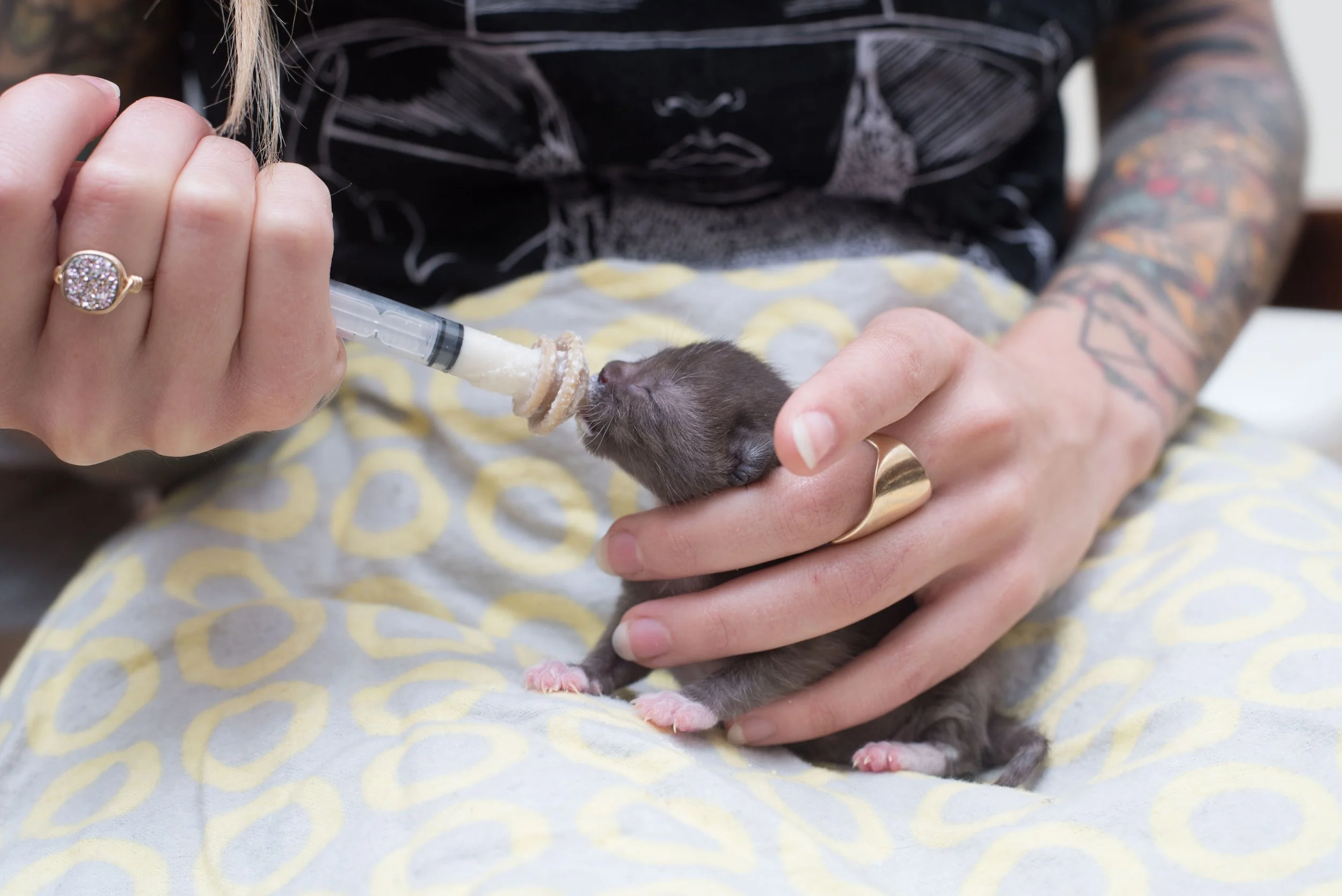Pneumonia in Kittens
Source: Merck Veterinary Manual
Pneumonia is a serious condition that impacts kittens who have untreated upper respiratory infections or who have aspirated. Symptoms include severe respiratory distress and loss of appetite, and these symptoms can cause rapid decline in a kittens. Pneumonia is often fatal for young kittens and for this reason it should be prevented at all costs. To prevent pneumonia, immediately treat all upper respiratory infections so that they cannot advance and move into the lungs--and engage in proper bottle feeding technique to avoid aspiration pneumonia.
Aspiration pneumonia is a concern for young orphan kittens, as it occurs when kittens inhale formula into the lungs during bottle feeding. To prevent aspiration, feed in the proper belly-down posture, and never squeeze formula forcefully down a kitten’s throat. If aspiration does happen, stop feeding and help the kitten sneeze out the formula. Consult a vet immediately if respiratory symptoms arise and get the kitten on an antibiotic.
If a kitten is in decline or if lung sounds are present, there is no substitution for a vet visit. Due to the high stakes for a young kitten, pneumonia should be treated aggressively and with extra care given to nursing the kitten back to health.
Read more about pneumonia from Kitten Lady's vet, Dr. Erica Ellis, below.
Pneumonia by Dr. Erica Ellis
What is the culprit?
The same organisms that cause upper respiratory infections can descend the respiratory tract and cause the much more serious issue of pneumonia.
How is it transmitted?
It can be airborne or caused by aspiration of food or fluid. This is common in orphaned kittens because nipples and tubes can sometimes be introduced into their trachea rather than their esophagus and end up in the lungs rather than the stomach.
What symptoms will the kitten show?
Kittens with pneumonia may only demonstrate vague symptoms like loss of appetite, weight loss or failure to gain weight, and low energy level. Their temperature may be too high or too low. You may also see mucoid discharge from the nares or eyes.
How can I prevent it?
Quarantine new kittens in an isolated area with good airflow. Ascertain that kittens are vaccinated for FVRCP starting at 6 weeks; some high volume cat shelters are vaccinating even younger at 4 weeks. Clean kittens’ environments thoroughly and frequently. Make sure that quarantined kittens are not sharing toys, blankets, litter boxes or bowls and feeding utensils with other kittens. Wash your hands thoroughly in between handling different kittens. For those kittens known to have an infectious respiratory disease, it is best to designate one specific person to their care and a separate person or people to care for those kittens who are not showing symptoms.
Do not attempt feedings in neonatal kittens until you are fully comfortable doing so. Do not forcefully squirt milk into a kitten’s mouth. If you ever see milk coming from a kitten’s nares during a feeding, immediately halt the feeding. Instructional videos are available here.
How might my veterinarian diagnose it?
Pneumonia may be diagnosed based on x-rays, history and physical exam.
How might my veterinarian treat it?
Pneumonia can be fatal to young animals and may require intensive supportive care such as fluids given in a leg bone, oxygen therapy, and IV antibiotic therapy.
Helpful Hints for Vets
Remember that thoracic radiographs in neonates reveal a normal cardiac silhouette to be 5 ICS and that lung fields will be less radiolucent than a healthy adult cat.
Normal neonatal temperatures should be around 96.8-98.6 degrees and they should be warmed gradually (over 1-3 hours). Oxygen should be administered at 40-60%. Shock doses of fluids for kittens are 25 mL/kg followed by maintenance fluid rates of 80 mL/kg/day for pediatrics and 180 mL/kg/day for neonates. IO catheterization would be required for these patients.




